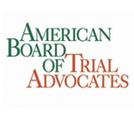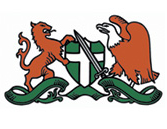After sustaining a catastrophic injury following an accident due to another person's negligence, you might face huge medical expenses, psychological pain, recovery uncertainty, physical pain, and the inability to engage in everyday activities like work. Compensation can assist you towards recovery. Receiving compensation means reaching an agreement with the defendant's insurer. Typically, a lawsuit is the last resort after other methods like mediation, arbitration, and negotiations with the defendant fail. Here is a comprehensive look for different compensation options worth pursuing.
Arbitration of Personal Injury Claims
Arbitration is an alternative dispute resolution process where an arbitrator listens to the evidence and determines the case outcome the same way a judge could in a court of law.
In a case involving a catastrophic injury, the arbitrator will determine several vital questions. Will you recover compensation from the defendant? And if so, the amount to be awarded? Please note that the arbitrator's decision binds all parties. This compensation option saves all the parties involved a lot of money and time.
When it comes to mediation, the mediator facilitates resolution between all the parties and cannot rule for any side. On the other hand, an arbitrator has the power to rule for the sides.
Arrangement to Arbitrate
Arbitration happens when all parties agree to the option. In other words, you cannot force the insurer to agree to arbitration, and the company cannot force you. Here are the fundamental things to reach an agreement on:
- Who your arbitrator will be — Your arbitrator could be a seasoned attorney, a retired judge, or any person that both parties agree on. Another method of choosing your arbitrator is requesting the insurance provider to suggest possible arbitrators and analyze the suggestions by researching online. Contact the courthouse and talk to different persons about your potential arbitrator online. Be sure to choose a person with a reputation of integrity and fairness.
- Your arbitrator's decision will be ultimate and can't be appealed — Arbitration is a favorable option to save the money and time that proceeding to trial will demand. You do not want to obtain a fair arbitration offer only to have the insurer delay paying your settlement or overturn it.
- There won't be rules of proof at your arbitration — It means you could use documents like pay records or medical bills or records without calling your employer or doctor to your arbitration as witnesses.
- You can agree on a "high-low" agreement — The insurance provider might insist on having one before deciding on this compensation option. A high-low implies that the insurer will not award you less than your low or more than your high figures irrespective of your arbitrator ruling. And should your arbitrator award an amount between your low and the high, you will be awarded that amount.
- How you will pay arbitration costs — Generally, the only arbitration cost is your arbitrator's fee based on the duration they spend on your claim. Will you share the cost equally? Who will pay the price?
What to Expect During Your Arbitration?
While the arbitration process is organized like a trial, the process is less formal.
It starts with both parties telling the arbitrator their side of the story.
Then, you present the evidence. You will testify under oath, explaining how your accident occurred, why the defendant is accountable for your injury, and the damages incurred. You can present evidence documents like lost wages statements and medical bills. Additionally, you can use your accident witnesses and loved ones who could testify to the impact of your catastrophic injuries.
Thirdly, the defense will present its proof. You have the right to cross-examine the defense's witnesses.
Finally, you will make your closing argument, clarify what you've established, and describe the decision you want your arbitrator to make. The insurance company can also make its closing argument.
Within a couple of weeks following the hearing, your arbitrator will issue an award statement with an explanation of our case outcome. The statement will contain information on how the arbitrator reached the decision.
Tips on How to Win in Your Arbitration
If the case is worth filing, it is worth winning. Prepare how to testify, organize your evidence, analyze your witness's testimony and decide what questions to ask the defense's witnesses when cross-examining them. Carefully prepare your closing argument and opening statement and ensure they are convincing.
Use drawing, diagrams, and photographs of your injury and your accident scene to support your points.
Think of what the insurer will contend with and be ready to refute those arguments. The opinions are from discussions you have had with them.
To impress your arbitrator, don't exaggerate. Instead, be sincere and prepared. Stay well-put and stick to your point when arguing your points.
Mediation in Personal Injury Claims
Mediation is an alternative dispute resolution used to enable personal injury claim settlements, sometimes without court. An experienced mediator assists you and the defendant or their insurance firm reach the claim's settlement.
A mediator does not require either of the parties to engage in anything. Instead, they facilitate and can give recommendations. Mediation only happens when every party consents to it, and you cannot force the insurance adjuster to agree to mediation.
What Occurs During Mediation?
Typically, mediation starts with discussions of preliminary matters, like any statement made in your mediation isn't admissible in a court of law. The law allows people to discuss their settlement without fear that whatever they say might be used against them should the case proceed to trial. It is crucial to sign your mediation agreement with the rules of your process.
Next, you, the plaintiff, will be allowed to speak and explain the view of your case, including the degree of your injuries, accident liability, and how you think you and the defendant should settle the case. Then the defendant is given the same opportunity.
After the parties have given their side of the story, there will be a group discussion. Alternatively, the mediator might separate you and be a shuttle diplomat, talking privately to each party and later the other and disseminating new proposals hither and thither.
Generally, your mediator aids every party to understand the other party's version in a private meeting. For instance, the mediator could identify your case weaknesses or advise you on how similar cases fare in court.
If the mediator used the shuttle strategy, the whole group might meet whenever your mediator thinks it is appropriate. In both methods, negotiations continue until it's obvious there will be no agreement or until there is an agreement.
The duration of personal injury claim mediation varies from one case to the other. In other words, there isn't a time limit to mediation, and it can take a few weeks to reach the agreement.
Pros of Mediation
If you've reached an impasse when negotiating with the insurance provider, consider mediation as a method of breaking from the stalemate. Some of the benefits of mediation include:
It permits you to be in the same space with the insurance adjuster, putting your face on your claim that is different from filing documents or calling the adjuster.
Mediation is less expensive and time-consuming compared to going to court.
You don't require arguments or documents for mediation that you don't already have from your claim process.
Disadvantages of Mediation
While mediation can last a couple of hours, those hours could be high-end if you engage a seasoned mediator. And an alternative of a pocket-friendly community mediator experienced in personal injury claims might be almost impossible to find near you.
Moreover, it might be challenging to get the insurance provider to settle on mediation since it demands a lot including making a personal appearance(s) at your mediation session(s).
What is the Way Forward?
Given the above pros and cons, you can consider mediation if:
- Both you and the insurer are stalemated at least three thousand dollars apart in settlement negotiations
- You have no other negotiating move left to make
- The degree of your catastrophic injuries and what percentage each party was accountable for your accident are vital factors in our case.
How to Win a Mediation
Here are the things to know about personal injury claim mediation:
- Ensure the individuals in the mediation room with you has authority to settle your claim. You do not want to reach what seems like a settlement agreement only to have the insurance adjuster turn into an underwriter, who has to confirm with their boss before finalizing your deal.
- Be sure your mediator has experience in personal injury claim mediation. Consider contacting the Civil Clerk of the courthouse and inquire who mediates most cases and which mediator has many successful issues resolved at mediation. Next, suggest the mediator to the insurance provider.
- Your mediator does not have the authority to enforce agreements. Even when they think one party is unreasonable in their demand, the mediator can't force them to engage in anything.
- Mediation costs money. Therefore, do not waste your money unless you are sure that the insurer will resolve your claim.
What Occurs When Your Personal Injury Claim Proceeds to Trial?
While the majority of personal injury claims are settled before a lawsuit is brought, some cases proceed to trial. Maybe the involved parties cannot agree on the defendant(s). Possibly the parties agree that you suffered a catastrophic injury but can't agree on the compensation amount.
Below is a procedure for trial.
1. Jury Selection
Typically, a jury decides the crucial issues in the claim. Although the jury consists of twelve people, that number could sometimes be smaller.
The initial step of a personal injury trial is voir dire; it is where the jury members are chosen. Possible jurors are asked a few questions so the judge and lawyers can determine whether the individual has any prejudices or biases that could prevent them from being impartial and fair.
2. Opening Statements
Next, the involved parties will make their opening statements. Your qualified lawyer will go first because you have the burden of establishing the case allegations. An opening statement is a chance for the parties to give their version of the story and outline what they'll refute or prove. It addresses what all lawyers expect the proof will demonstrate.
Generally, opening statements last approximately twenty minutes.
3. Your Presentation of Proof
Here your lawyer presents your case. The lawyer goes first because you have the burden of proof.
Your legal counsel presents proof on the key issues using witnesses. For instance, to prove how your accident happened, your lawyer would ask you to testify what you saw during and before your accident. The lawyer might also call bystanders among other witnesses.
An identical pattern is followed in presenting proof of other case issues. For instance, to show evidence of your catastrophic injuries, your personal injury attorney will ask your doctor questions about the treatment received after your accident and your prognosis for recovery.
4. The Defendant's Presentation of Proof
The liable party's presentation of the proof follows an identical format as yours. The defendant's lawyer calls witnesses to talk to the jurors about the critical case issues. Typically, the witnesses' testimony supports the arguments and defenses of the defendant.
5. Closing Arguments
Next, the attorneys for all sides give their closing argument. Attorneys for every side speak with the jury regarding the case evidence presented. It is also a chance for the lawyers to:
- convince the jury members to come to a given conclusion from the proof, and
- then give a verdict in favor of the specific party.
6. The Jury Deliberation
After the closing arguments, the jurors move to another room to deliberate on the presented evidence and finally reach a verdict. Typically, jury deliberations are private, and neither the judge nor the parties observe them. The jury can take several hours or days before reaching the verdict.
7. The Jury Members Reach the Verdict
After the jurors reach your verdict, they will notify the judge. The judge will take the jury into a courtroom. Then your verdict is read to all the sides and made an official court record.
There isn't a set time limit for the trial. The duration will vary depending on the case complexity and your court procedures.
How to Get to Most Satisfying Settlement
After your personal injury compensation process commences, you should have a practical strategy. The following settlement tips are a good starting point.
Know Your Settlement Amount
When composing your demand letter, you should figure out the range you believe the claim is worth. Before speaking with the insurance adjuster, decide on the settlement figure you can take. Please note, the amount is for your information and should not be revealed to the insurer.
You do not have to stick to your original figure. If the insurance adjuster highlights facts you hadn't considered that can make the case weaker, you can lower the minimum figure a bit.
Retain an Experienced Personal Injury Attorney
It is paramount that you hire a lawyer, mainly if:
- You are asking for compensation for pain and suffering and catastrophic injuries involving a lot of money. The insurance company is less likely to take a plaintiff without legal representation seriously when the claimed damages add to more than tens of thousands of dollars.
- You're seeking the cost of future medical bills and loss of earning capacity.
- There is a question of the liable person for your catastrophic injury; the attorney will craft and make your argument correctly.
Don't Take the Insurance's Initial Offer
Generally, insurance providers initiate negotiations by offering a low amount. The adjuster here is trying to know whether you know your claim's worth and test your patience.
If the initial offer is rational, you could make counteroffers lower than the demand letter amount. That tells the insurer that you're willing to find the middle ground. A little bargaining should get you a fair settlement amount quickly.
Emphasize on Emotional Points in the Case's Favor
During your negotiations, mention all emotional points supporting the claim. If you sent the insurance company photographs of your injuries, refer to them. If there was alcohol in the defendant's vehicle, refer to the likelihood of driving while under the influence. If your catastrophic injuries affected the ability to support your family, mention that your loved ones suffered. Although it is difficult to place a dollar value on these factors, they could persuade the insurer to settle your claim.
Ensure Your Settlement is in Writing
Once you and the insurance adjuster agree on the settlement terms and amount, confirm your agreement in a letter to the insurance company. Your letter should be precise and short.
Going to Court, Arbitration, or Mediation: Which is The Best Compensation Option?
Your compensation option of choice depends on you and your legal assistance.
In most cases, the risk of losing in court is high, and many cases are settled outside of court. It can be through mediation, negotiations with the at-fault party, or arbitration.
If you have challenges deciding, consider:
- how much compensation amount is fair,
- whether you're willing to put up costs, and
- your relationship with the liable party.
Using arbitration or mediation means saving more on costs, time, and relationships than in trial. Nevertheless, if the insurance provider is more hesitant to make a reasonable offer, proceeding to trial could provide a method of settling and end the overwhelming process.
It is also essential to consult a skilled personal injury lawyer when determining your compensation option.
Find Skilled Legal Representation for Your Catastrophic Injury Near Me
Suppose you have suffered a catastrophic injury after an accident caused by a negligent person. In that case, you are entitled to recover compensation for your losses like lost wages, pain and suffering, and medical bills. However, there are several compensation options, and you should understand what works best in your case. For instance, while both mediation and arbitration offer an easier alternative to litigations, they aren't one-size-fits-all. The knowledgeable legal team at Los Angeles Car Accident Attorney can break down the differences between various options on top of discussing advantages offered by each option. We can also work aggressively to maximize your case's value. Call us today at 424-237-3600 to book your initial consultation. Our talented legal professionals are ready to answer all your legal questions and help you make the right decision.






